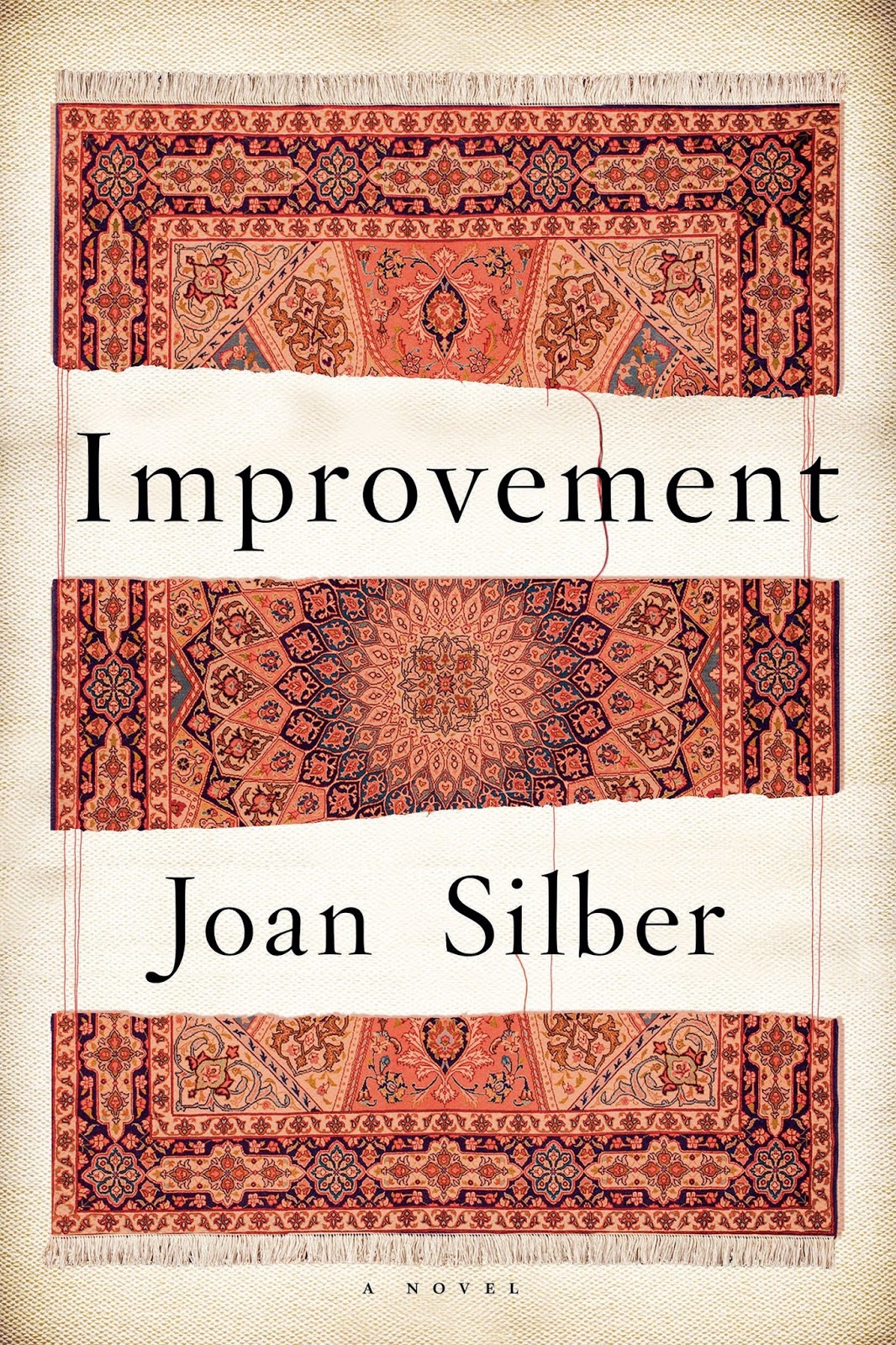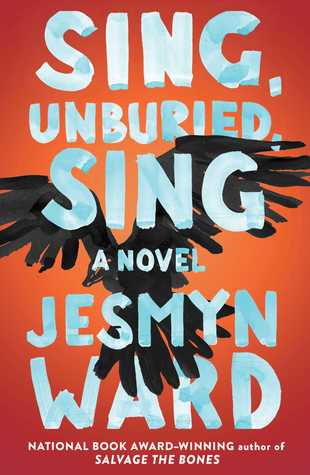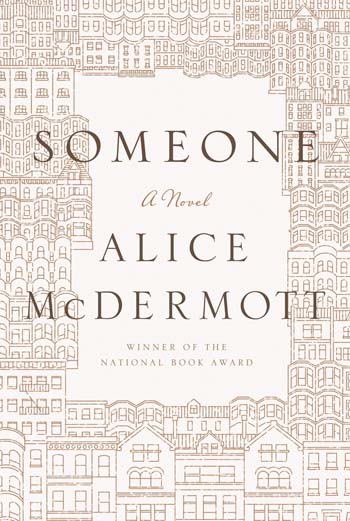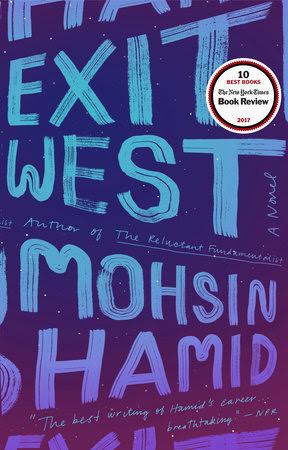The MFA students from the Creative Writing at The New School interviewed the NBCC finalists for the 2017 year. The interviews are also published at Brooklyn Magazine.
Emilia T. Monell interviewed Joan Silber about her novel Improvement (Counterpoint).
 Joan Silber’s Improvement (Counterpoint) delivers a true tapestry of human connection. It is a story about the young New Yorker Reyna, who finds herself in criminal schemes alongside her ex-con boyfriend Boyd, as she struggles to find meaning after encounters of deep guilt and loss. It is a story about Reyna’s quirky aunt Kiki, whose fierce independence guides her youth in 1970s Turkey and whose choices go on to impact generations of families. It is a story about Richmond native Darisse, who seeks a match for her profoundly compassionate nature. This book examines how characters are rolled about by the forces of change and subtly directed into each other’s lives; it is a masterful record of their collective, undeniable growth.
Joan Silber’s Improvement (Counterpoint) delivers a true tapestry of human connection. It is a story about the young New Yorker Reyna, who finds herself in criminal schemes alongside her ex-con boyfriend Boyd, as she struggles to find meaning after encounters of deep guilt and loss. It is a story about Reyna’s quirky aunt Kiki, whose fierce independence guides her youth in 1970s Turkey and whose choices go on to impact generations of families. It is a story about Richmond native Darisse, who seeks a match for her profoundly compassionate nature. This book examines how characters are rolled about by the forces of change and subtly directed into each other’s lives; it is a masterful record of their collective, undeniable growth.
Emilia T. Monell: Improvement. That is such a strong title, and it’s a term that comes up a few times within the novel. My favorite is when Darisse mentions her private religion and how she imagines the walls of her bedroom becoming air to form a larger space. She says that is how strength will come to her and how improvement will come to her. Can you talk about that idea of improvement coming from an expansion of space?
Joan Silber: Interesting. I didn’t come up with the title right away, I came up with it at the end, after I had written these different strands. But certainly I do think it is the task of a fiction to figure out how you get through the difficulty and natural suffering of experience.
The key improvement in the whole book is that Reyna gets it together to make this act of quixotic generosity and do some good. But certainly, the Darisse chapter is really important to me. I’m interested in self-reliance. I sort of forget that, but it keeps coming up. I created Kiki out of that. But I think it’s also important in a character like Darisse, who certainly seems to be out of resources but we see her with plenty of resources. So I’m definitely interested in that kind of improvement as well. The thing about Darisse is also that she’s really a character of emotional integrity, in her own way. She clings to her feelings for the disappeared Claude in the space of everyone else saying “He doesn’t care about you.” And she does get on with her life, as we always tell people to do. So her sense of improvement with that was important to me.
Na Zhong interviewed Arundhati Roy about her novel The Ministry of Utmost Happiness (Knopf).
 Na Zhong: To his shock, the landlord and college friend of Tilo, Garson Hobart discovers photos and documents that she has been keeping for Musa. Does this discovery mark the awakening moment for him, or does it come later, when he is organizing the files for her?
Na Zhong: To his shock, the landlord and college friend of Tilo, Garson Hobart discovers photos and documents that she has been keeping for Musa. Does this discovery mark the awakening moment for him, or does it come later, when he is organizing the files for her?
Arundhati Roy: I wouldn’t say that Garson Hobart has an “awakening moment” as such. He’s a very astute man, long committed to amorality. In a way, he knows as much about Kashmir as Musa does—from the opposite end of the viewfinder. In these matters, he’s a man who’s hard to surprise. For example, he knows about Major Amrik Singh and his trail of blood. He knows how the government helped him leave the country rather than risk being exposed as an accomplice to his crimes. The chink in Hobart’s armor is not ignorance of any kind—it’s Tilotamma. And when he begins to look through her weird archive, what increasingly shocks and unnerves him is that it’s her archive. It’s her perspective that destabilizes him more than the files and photographs and documents, more than any kind of actual “evidence” that he comes across. What shocks him is not the discovery of Amrik Singh’s crimes, but the fact that Tilo had been tracking him over so many years.
Erik Kristman interviewed Jesmyn Ward about her novel Sing, Unburied, Sing (Scribner).
 Jesmyn Ward tells stories that will haunt you. She is a two-time winner of the National Book Award for Fiction and is currently a finalist for the 2018 National Book Critics Circle award for Fiction for her latest novel, Sing, Unburied, Sing (Scribner). In Sing, Ward tells the heart-wrenching story of a Mississippi family whose past and present lives are tearing them apart. Unburied spirits arise to tell stories untold.
Jesmyn Ward tells stories that will haunt you. She is a two-time winner of the National Book Award for Fiction and is currently a finalist for the 2018 National Book Critics Circle award for Fiction for her latest novel, Sing, Unburied, Sing (Scribner). In Sing, Ward tells the heart-wrenching story of a Mississippi family whose past and present lives are tearing them apart. Unburied spirits arise to tell stories untold.
The creativity found in Sing, Unburied, Sing is astounding in not just its veracity, but also its delivery. From multiple points of view, including a ghost’s, to entire stories told in italics, I spoke with Ward on the process of creating the spellbinding literary labyrinth that is Sing, Unburied, Sing, as well as her upcoming novel.
Erik Kristman: My favorite part of Sing, Unburied, Sing is how each character is a storyteller. Leonie tells the story of Given, Jojo the story of Richie, Richie the story of Pop. This is inviting to the reader because the stories of each character quickly become the lore of the world. The way these stories are delivered, though, is incredibly experimental. I wondered how the italics for Pop’s story worked its way into such prominence in the novel.
Jesmyn Ward: narrative from Jojo’s point of view was very difficult. It was something that I had to work at for a while. From the beginning, they were in italics. There was something about letting Pop’s voice speak in those italicized sections that worked.
Lucas Mautner interviewed Alice McDermott about her novel The Ninth Hour (Farrar, Straus and Giroux).
 The Ninth Hour by Alice McDermott follows the lives of several Catholic women living in early-twentieth-century Brooklyn. When Annie’s husband commits suicide, she is left with few choices, especially since she is pregnant with their child. Due to the kindness of Sister St. Saviour, a nun whose vocation is to help the poor and sick, Annie begins to work at the convent, where her daughter Sally is born. The lives of Annie, Sally, Sister St. Saviour, Sister Illuminata, and others reveal pain and suffering, penance and salvation, and, most importantly, the often-ignored sacrifice that these women and their contemporaries made.
The Ninth Hour by Alice McDermott follows the lives of several Catholic women living in early-twentieth-century Brooklyn. When Annie’s husband commits suicide, she is left with few choices, especially since she is pregnant with their child. Due to the kindness of Sister St. Saviour, a nun whose vocation is to help the poor and sick, Annie begins to work at the convent, where her daughter Sally is born. The lives of Annie, Sally, Sister St. Saviour, Sister Illuminata, and others reveal pain and suffering, penance and salvation, and, most importantly, the often-ignored sacrifice that these women and their contemporaries made.
Lucas Mautner: There were so many incredible historical details in this book: the description of the chamber pot; the laundry; the information about the various orders of nuns. Can you describe your research process while writing this book?
Alice McDermott: Research is a siren song for novelists—or at least for this one. It’s so easy to be lured into hours and days of research, uncovering all kinds of fun facts, while not a single sentence meant for readers gets written. To avoid this, I try to write as much of the story as I can before I start to research. I find that if I labor to get my characters to the page with some vividness, I’m surprised by how much I seem to know about their lives.
Yasmin Zaher interviewed Mohsin Hamid about his book, Exit West (Riverhead).
 Yasmin Zaher (YZ): I was surprised by the narrative voice of Exit West. It is straightforward, reliable. You said that it was inspired by the tone of children’s books, so I’m even tempted to say that it’s naive. Is that a reaction to the cynical political climate, or is it a personal trajectory of yours?
Yasmin Zaher (YZ): I was surprised by the narrative voice of Exit West. It is straightforward, reliable. You said that it was inspired by the tone of children’s books, so I’m even tempted to say that it’s naive. Is that a reaction to the cynical political climate, or is it a personal trajectory of yours?
Mohsin Hamid (MH): I think both. My first novel, Moth Smoke, has cynical characters, an untrustworthy narrator, all sorts of corruption: personal, political, and emotional. It was a reaction to growing up in Pakistan in the 1980s, a supposedly Islamized and pure place. I wanted to show it as the opposite. But I do think that in this moment, politically speaking, truth and honesty have become debased and denied. I wanted to write something that tries to be true, with characters that are trying to be decent.
But it might as well be personal. I’m 46 years old, I have two kids, I have been writing novels for 25 years and living with my family in Pakistan where I am the middle generation: my parents the older ones, my kids the younger ones. I think I have been looking personally, for myself and in my own life, at these sorts of issues. What sort of person should I be and how should life be lived? I think as a father and also as a son I’m trying to figure that out. In some senses I’m looking at older forms. Not just children’s books, but for example, I’m re-engaging with ideas in Sufi literature, or Zen thought. I’m trying to look at traditions of older wisdom and investigate if there is something useful there for me. Something that can be described as not specific to one religion but open to everybody.
YZ: You talk about writing decent characters, but decency is not a neutral term. What constitutes decency for you, and as a writer, how is the experience of constructing decent characters different than the morally questionable characters of your previous books?
MH: Well, I think that decency is not necessarily a state that a character inhabits, so much as an orientation that they value. Said and Nadia are not perfect human beings, they do things which they each individually regard as potentially wrong – for Said leaving his father in the novel is something that he doesn’t know if it’s the correct thing to do. So it’s not that people are fundamentally decent or indecent, but rather the impulse towards decency is an important impulse to take seriously. And many people do. This is why even in situations of enormous ethnic tension or political pressure we have people not behaving violently. The story of humanity is not the story of genocide and murder it’s the story of so many genocides and murders that do not happen, because decency holds. It doesn’t mean that their sense of decency is the correct one, but it’s something of meaning to them. This notion is almost old-fashioned. But it’s something I’m interested in because I think this old notion is actually true of many and for most people much of the time.

